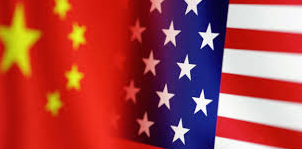Annual ISEAS survey shows a shift in regional alignment, with ASEAN favouring Washington over Beijing amid geopolitical tensions.
More than half of the 2,023 respondents surveyed across 11 Southeast Asian countries have expressed a preference for aligning with the United States over China if forced to choose between the two global powers. These findings, published in the State of Southeast Asia 2025 report by the ISEAS-Yusof Ishak Institute, highlight the shifting strategic perceptions in the region.
The survey, conducted between January and mid-February, reveals that 52.3% of participants favour the US, while 47.7% prefer China. The results mark a reversal from the previous year when China held a slight edge. The report also indicates that a majority of respondents believe ASEAN should strengthen its unity and resilience to navigate pressures from these dominant global actors.
This shift underscores ASEAN’s challenge in balancing economic interdependence with China against security interests and historical ties with the US. The latest results position Washington as the region’s preferred strategic partner once again after briefly falling behind Beijing.
Southeast Asia, with a population exceeding 680 million, is an area of growing strategic importance for both the US and China. This year’s survey included responses from all 10 ASEAN member states and, for the first time, participants from Timor-Leste, which seeks full ASEAN membership in 2025.
The strongest support for the US came from Vietnam and the Philippines, likely influenced by ongoing territorial disputes with China in the South China Sea and expanding security collaborations with Washington. Meanwhile, China maintains stronger backing in Indonesia, followed by Malaysia, Thailand, Brunei, and Laos, where economic ties with Beijing play a crucial role.
Concerns over the South China Sea tensions were ranked as the region’s top geopolitical issue, followed by worries about transnational crime syndicates and uncertainties surrounding the new US administration. While confidence in Washington has grown following President Donald Trump’s re-election, many survey respondents expressed concerns about the unpredictability of his policies and their potential impact on US engagement with the region.
Experts suggest that strategic uncertainty over China’s assertive policies—such as its military activities in contested waters—has contributed to ASEAN’s renewed preference for the US. Despite this, the survey results reflect a broader regional desire to avoid choosing sides outright, with ASEAN prioritising stability and diplomatic autonomy over full alignment with either superpower.








